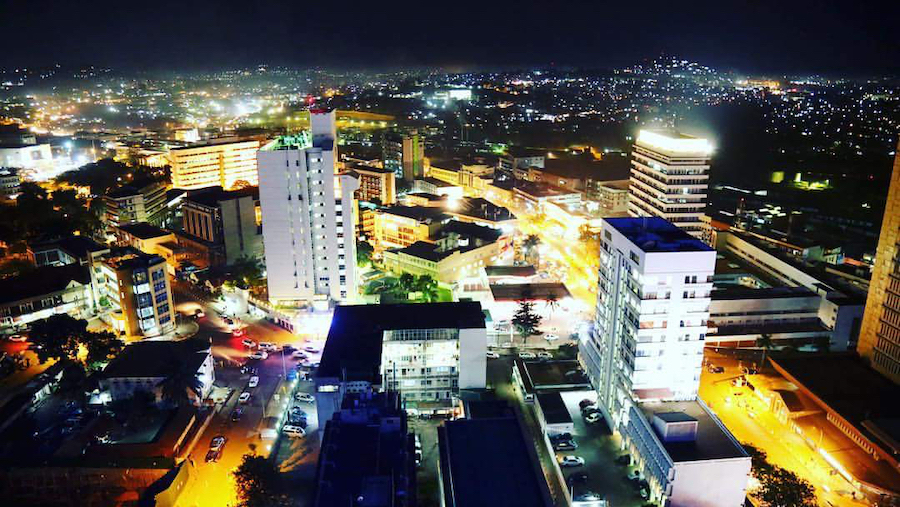
Kampala, Uganda’s bustling capital, is a city brimming with history, culture, and a vibrant urban life. It is nestled among seven hills and covers an area of 189 square kilometers, playing host to an estimated population of over 3.5 million people.
Historical Overview
Early Beginnings
Kampala’s history can be traced back to the Buganda Kingdom, one of the oldest kingdoms in Africa. The city’s name originates from the local language, Luganda, where “Kasozi K’empala” means the hill of antelopes, alluding to the abundance of impalas in the area. It was initially a hunting ground for the local Kabaka (king).
Colonial Era and Independence
The British colonized Uganda in 1894, and Kampala served as the colonial administrative center. With the advent of independence in 1962, Kampala became the capital of Uganda, a role it has retained to the present day.
Modern Kampala
After decades of political instability and civil unrest, Kampala is now witnessing an era of revitalization and growth. Despite past adversities, the city has resiliently rebuilt itself and is now considered one of East Africa’s fastest-growing cities.
Geographical Marvel: The City of Seven Hills
Kampala is famously known as the ‘City of Seven Hills,’ with each hill carrying its unique significance and charm. The city spans a relatively small geographical area but is filled with lush green hills, red-tiled villanellas, modern skyscrapers, and bustling local markets that perfectly capture the city’s blend of tradition and modernity. The seven hills—Kasubi, Mengo, Kibuli, Namirembe, Lubaga, Nsambya, and Kampala Hill (Old Kampala)—each host prominent landmarks such as royal palaces, religious centers, and historical sites, contributing to the city’s unique skyline and rich history.
The Cityscape
Architecture
Kampala’s architecture is a testament to its rich history. From the Buganda kingdom’s traditional thatched huts to the colonial-era buildings and modern skyscrapers, the city offers a unique blend of architectural styles. The Uganda National Mosque, Lubiri Palace, and the Parliament building are some of the iconic landmarks.
Neighborhoods
Kampala is divided into five divisions, each offering unique experiences. Central Kampala is the city’s commercial heart, while Nakawa hosts industrial businesses. Makindye, famous for its nightlife, Rubaga, the oldest division with historical significance, and Kawempe, known for its vibrant local markets, complete the city.
Cultural Landscape
Culture is an intrinsic part of Kampala’s identity. The city serves as a melting pot for different tribes, religions, and traditions, including the Baganda, Banyankore, Basoga, Bakiga, and many more. Despite this diversity, a unique Kampala culture has emerged, blending the various cultural influences. This amalgamation of cultures is evident in the city’s arts, music, dance, cuisine, and festivals.
Languages and People
Although English is the official language, Luganda is widely spoken among locals. The city is multicultural, hosting over 56 tribal groups. The Baganda form the majority, followed by Banyankole, Basoga, and Iteso, among others.
Music and Dance
Music and dance are integral to Kampala’s culture. Afrobeat, hip-hop, and local genres like Kadongo Kamu are popular. Traditional dances like the Kiganda performed at royal events, and contemporary dances are part of the city’s cultural tapestry.
Economy
Kampala is not just the political capital but also the economic engine of Uganda. It houses the headquarters of most of Uganda’s large firms, a number of international businesses, and organizations. From modern shopping malls to local markets such as the Owino Market and Nakasero Market, the city provides a spectrum of business activities. Kampala’s economy is based on multiple sectors including commerce, manufacturing, real estate, and information technology, reflecting its dynamic and resilient character.
Trade and Commerce
As Uganda’s economic hub, Kampala plays a critical role in the country’s trade and commerce. The city is a significant center for the banking, manufacturing, and telecommunication sectors. The local markets, like Owino and Kikuubo, are trading hotspots for a variety of goods.
Tourism
With its scenic beauty, wildlife, historical sites, and vibrant culture, Kampala is a popular destination for tourists. The Uganda Museum, Kasubi Tombs, Bahai Temple, and the National Theatre are key attractions. Additionally, its proximity to the majestic Lake Victoria and the Nile River adds to its allure, offering a variety of recreational activities.
Transport and Infrastructure
Kampala has undergone significant infrastructural development, with well-laid roads, buildings, and public utilities. The city has a unique transport system dominated by minibusses known as ‘Matatus’ and motorcycle taxis called ‘Boda Bodas’. The development of the Kampala-Entebbe Expressway has significantly eased transport to the international airport.
Education and Healthcare
Kampala is home to several educational and research institutions and hospitals of national and international repute. These institutions have made Kampala a hub for education and research, attracting students and scholars from across the globe.
Education
Kampala is Uganda’s educational hub, with numerous institutions offering quality education. Makerere University, one of Africa’s oldest and most prestigious universities, is located here. The other universities to take note of are Kyambogo University, Kampala International University, and Victoria University. These have nurtured great elites who are taking Kampala to greater heights through good development policies and innovations.
Healthcare
The city boasts some of the best healthcare facilities in Uganda, including Mulago Hospital, the largest hospital in the country. Efforts are ongoing to improve public health services and address issues like HIV/AIDS and malaria.
Despite its challenges, Kampala is a city that symbolizes resilience and hope. Its rich history, cultural diversity, and vibrant urban life make it an exciting destination. As the city continues to grow and develop, Kampala holds a promising future, remaining the beating heart of Uganda